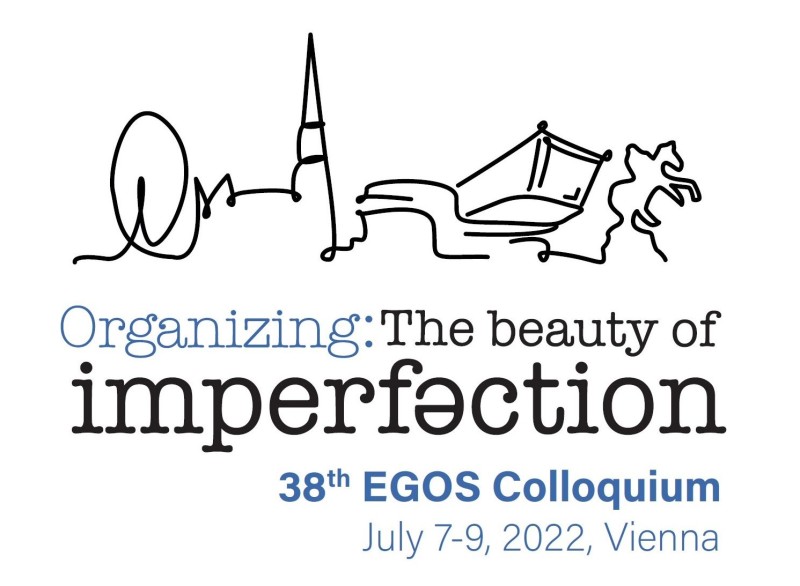Sub-theme 40: Democracy, Deviance and Transformation in Organizations and Societies ---> MERGED with sub-themes 49 and 68
Convenors:
Kanimozhi Narayanan, Aston University, United Kingdom
Irma Rybnikova, Hamm-Lippstadt University of Applied Sciences, Germany
Anna Soulsby, University of Nottingham, United Kingdom
Session I: Thursday, July 07, 11:00 to 12:30, TC.5.04
Deviance Session 1: Impact of Cyber/deviance in Workplace Practices
Chair: [tba]
Théo Simon and Bertrand Venard
Optimism for imperfect practices. How moral debates influence SME’s cybersecurity practices
Sunil Maheshwari, Ashneet Kaur and Sudhanshu Maheshwari
Is cyberloafing exhausting your employees? Towards examining the employees’ cyberdeviance due to negative workplace gossip
Varun Sharma and Jatin Pandey
Direct and indirect effects of psychological entitlement on workplace incivility: A social cognitive perspective
Session II: Thursday, July 07, 14:00 to 15:30, TC.5.04
Deviance Session 2: Implications for Individual Employee due to Deviance at Work
Chair: [tba]
Liad Bareket-Bojmel and Nirit Toshav-Eichner
Emotional implications of phubbing in the workplace: Implications for burnout, team climate, and perceived organizational
support
Muhammad Farrukh Moin
Abusive supervision job outcomes
Rebecca Mitchell and Brendan Boyle
Profession, identity and counterproductive work behavior
Session III: Friday, July 08, 09:00 to 10:30, TC.5.04
Workplace Democracy and Society 1
Chair: Thomas Steger
David Erdal
Why equality is good for our health
Perttu Salovaara, Johanna Vuori and David Collinson
Challenging oligarchy and hierarchy: Democratic practices and community-oriented organizing
Olivier Jégou
Examining the role of participative management in the development a workers’ capability for the self-government of work
Session IV: Friday, July 08, 11:00 to 12:30, TC.5.04
Workplace Democracy and Society 2
Chair: [tba]
Thomas Steger
On the way to organizational democracy? The role of employee shareholder associations in German listed companies
Reima Launonen, Jori Mäkkeli and Tuukka Kostamo
The quest for a more democratic work life – How new models of organizing can create momentum for stronger democracy
Christian Martin Kroll and Laura Marie Edinger-Schons
Corporate power and stakeholder democracy. A business ethical reflection and research agenda
Session V: Friday, July 08, 14:00 to 15:30, TC.5.04
Transition Session 1: Transitions, Gender, Management in Post-Socialist Societies
Chair: Zlatko Nedelko
Quan Tran, Maaja Vadi and Krista Jaakson
Universal task and two faces of relationship orientation: Perception of organizational culture in Vietnam
Ákos Nagy and Judit Gáspár
Imperfect responsibility – The limitations of catalysing transformation through organisations: The role of a leader in a Central-Eastern
European context
Anna Soulsby
Organizational heroes and the control of managerial legitimacy in post-communist societies
Session VI: Saturday, July 09, 09:00 to 10:30, TC.5.04
Transition Session 2: Cultures, Institutions and Corporate Social Responsibility in Transitional and Developing societies
Chair: Anna Soulsby
Henriett Primecz and Beáta Nagy
Good number in the middle, almost no women on top positions. A Central Eastern European paradox. Post-Socialist legacy
Anjan Ghosh and Sanat Kozhakhmet
Creatively connecting cultures within rigid institutional
boundaries: Theorizing from French embassy’s SME trade mission journey in
Kazakhstan
Zlatko Nedelko and Vojko Potocan
Effect of economic orientation on corporate social responsibility – Longitudinal analysis from Slovenia
Session VII: Saturday, July 09, 11:00 to 12:30, TC.5.04
Democracy, Deviance and Transformation in Organizations and Societies: Looking back and ahead
Chair: Anna Soulsby, Kanimozhi Narayanan, Irma Rybnikova
Thorvald Gran
The function and power of language communities. Constraints on sovereigty and democracy in nation states. The Norwegian case
Tine Lehmann
Managerial strategies in complex institutional settings in transition economies
Muhammad Faisal, Pauline Stanton and Michael Muchiri
Can ethical leadership counter the counter-productive workplace behaviours in Pakistani public hospitals?


